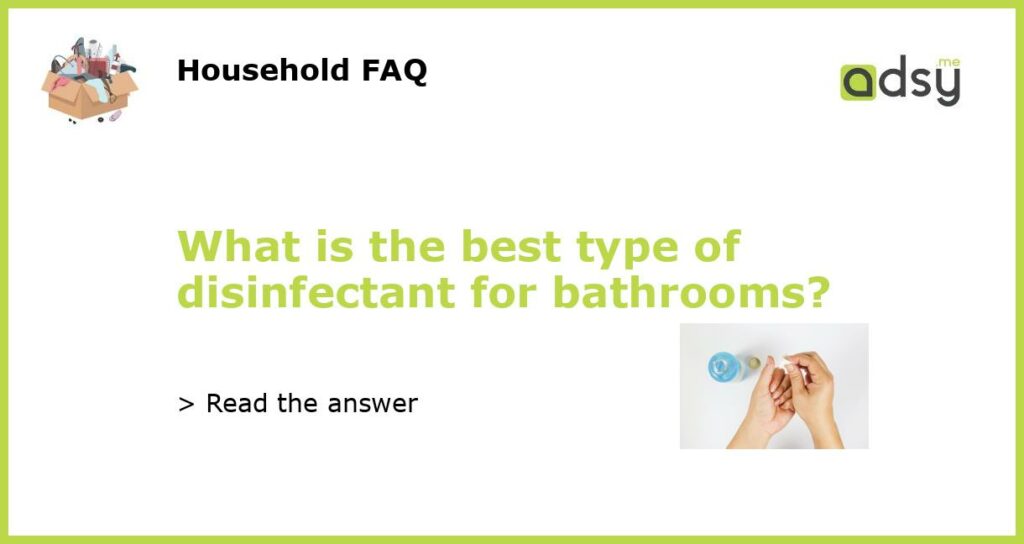The Importance of Disinfecting Bathrooms
Bathrooms are one of the most frequently used rooms in any home or public building, and as such, they are a breeding ground for germs and bacteria. Properly disinfecting bathrooms is crucial for maintaining good hygiene and preventing the spread of illness. But with so many different types of disinfectants available, it can be difficult to know which one is best. In this article, we explore the options and help you make an informed choice.
Bleach: A Powerhouse Disinfectant
Bleach is one of the most commonly used disinfectants, and for good reason. It is highly effective at killing a wide range of germs and bacteria, including the flu virus and salmonella. However, it is important to use bleach properly, as it can be dangerous if not handled correctly. It should always be diluted according to the instructions on the label and never mixed with other chemicals, as this can produce toxic fumes.
Vinegar: A Natural Option
If you prefer to use natural products in your home, vinegar is a great option for disinfecting bathrooms. While it may not be as effective as bleach at killing certain types of bacteria, it is still a powerful disinfectant that can help to keep your bathroom clean and fresh. Mix equal parts white vinegar and water in a spray bottle and use it to clean and disinfect surfaces such as the toilet, sink, and shower.
Hydrogen Peroxide: A Versatile Disinfectant
Hydrogen peroxide is another option for disinfecting bathrooms. It is effective at killing a wide range of germs and bacteria and is safe to use on most surfaces. However, it can bleach fabrics, so it is important to use it carefully. To use hydrogen peroxide as a disinfectant, simply dilute it with water in a spray bottle and apply it to the surfaces you want to disinfect.
Disinfecting Wipes: A Convenient Option
If you are looking for a convenient option for disinfecting bathrooms, disinfecting wipes are a great choice. These pre-moistened wipes are infused with disinfectant and can be used to quickly and easily clean and disinfect surfaces such as countertops and toilet seats. However, they are not as effective as other disinfectants at killing certain types of bacteria, so it is important to use them in combination with other disinfectants for maximum effectiveness.






